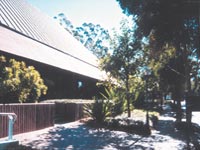Climate Law - JURD7466
Faculty: Faculty of Law
School: Faculty of Law
Course Outline: See below
Campus: Sydney
Career: Postgraduate
Units of Credit: 6
EFTSL: 0.12500 (more info)
Indicative Contact Hours per Week: 2
Enrolment Requirements:
Pre-requisite: 36 UOC of JURD courses for students enrolled prior to 2013. For students enrolled after 2013, pre-requisite: 72 UOC of JURD courses.
Excluded: LAWS8066
CSS Contribution Charge: 2 (more info)
Tuition Fee: See Tuition Fee Schedule
Further Information: See Class Timetable
View course information for previous years.
Description
The course examines ongoing debates about national emissions regulations, as well as more localised attempts to build a low emissions economy. The course will provide international comparisons to better situate Australia’s legal regime.
Main topics
• The science and economics of climate change
• History of the International climate regime
• Structure and framework of UNFCCC and Kyoto Protocol
• Climate finance and international development (REDD)
• Climate law and policy in Australia
• ‘Baseline and credit’ and other carbon pricing laws
• Carbon sequestration
• Case studies with cross-cutting issues with private law (such as property access for resource companies)
• Climate change litigation
The course will be useful for students intending to work in a wide range of practice areas, from commercial and energy law to planning, policy and international development. It will be valuable for students interested in the relationships between law, science, technology, ethics and government for a world where the boundaries between nature and culture are increasingly blurred by the shifting climate.
More information can be found on the Course Outline Website.









